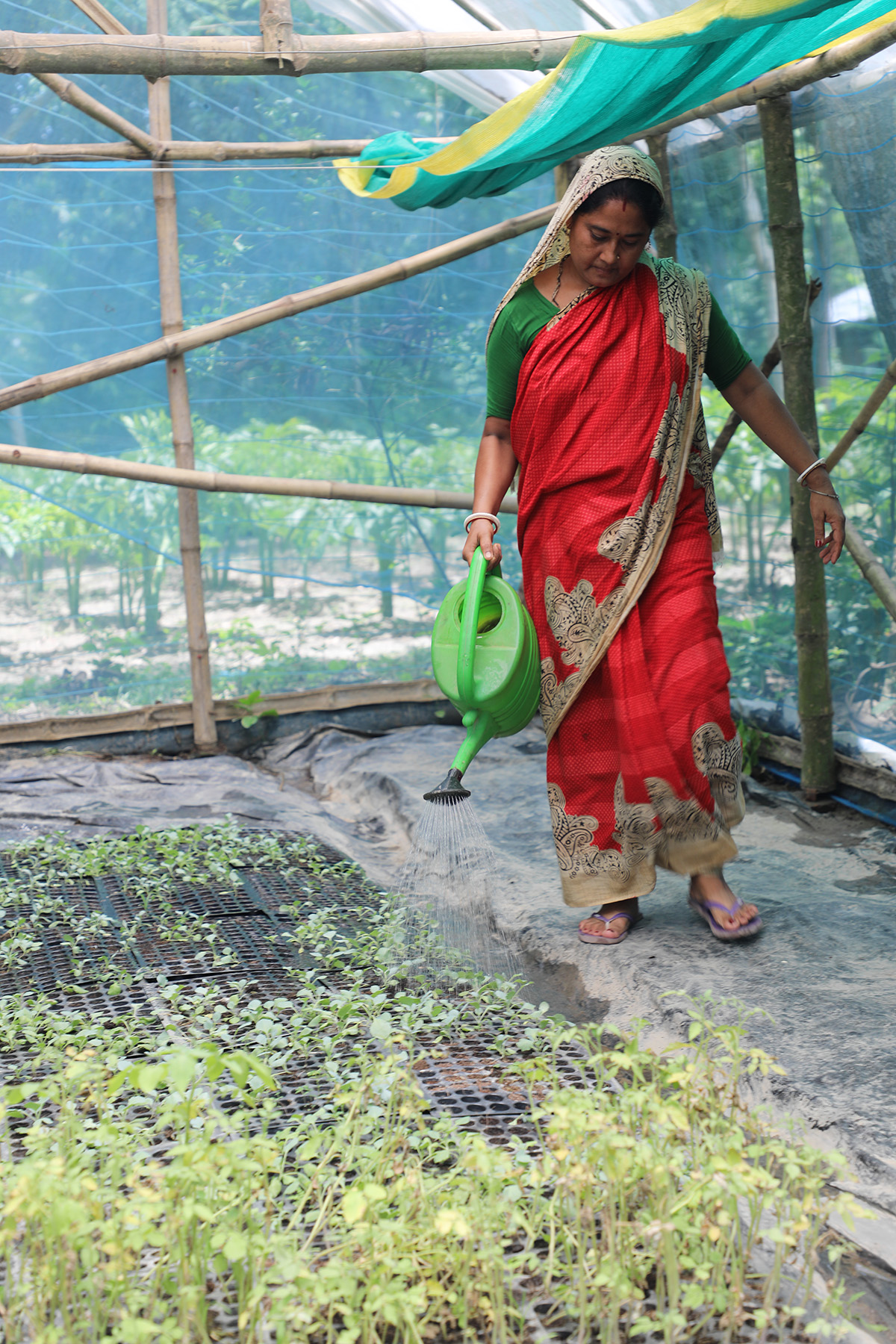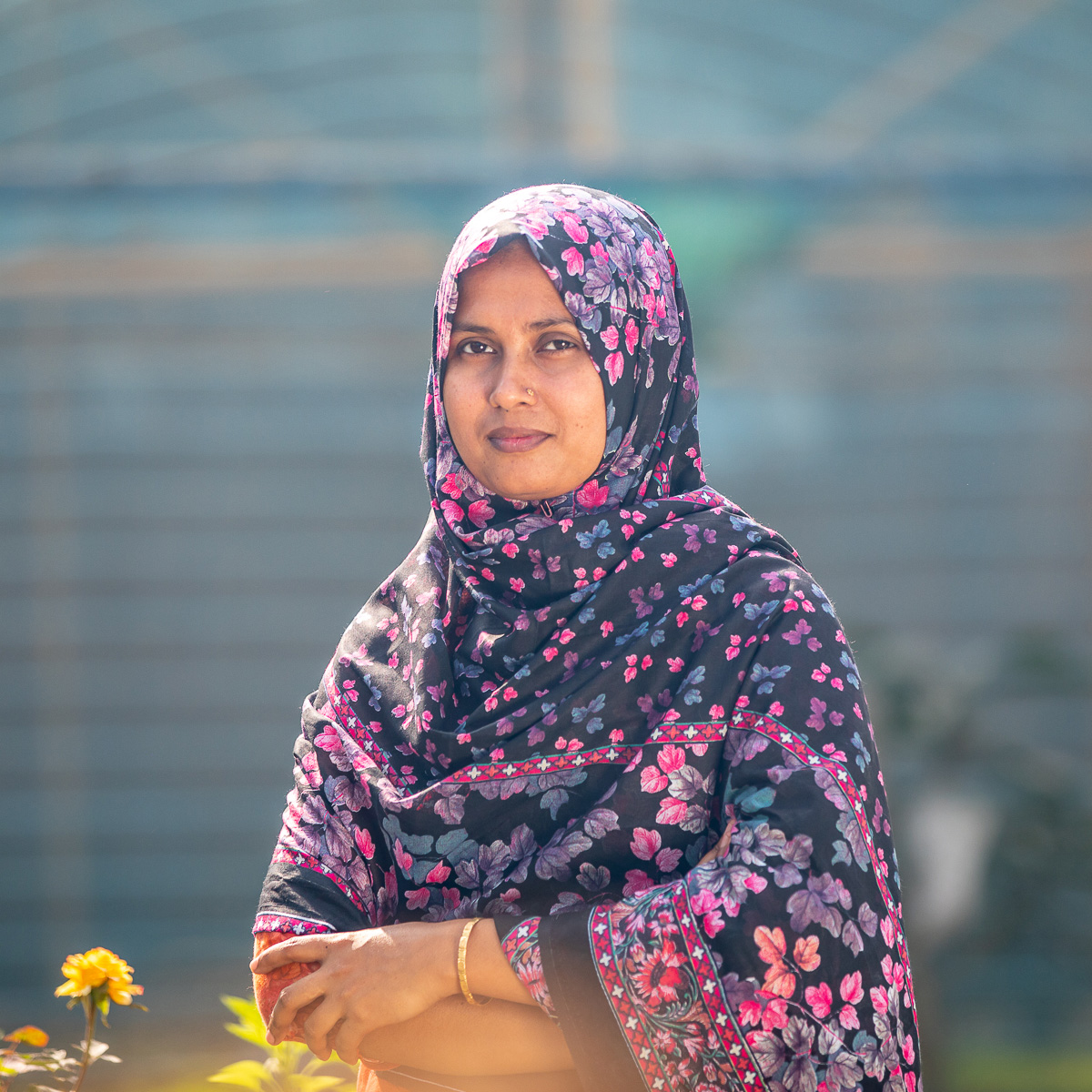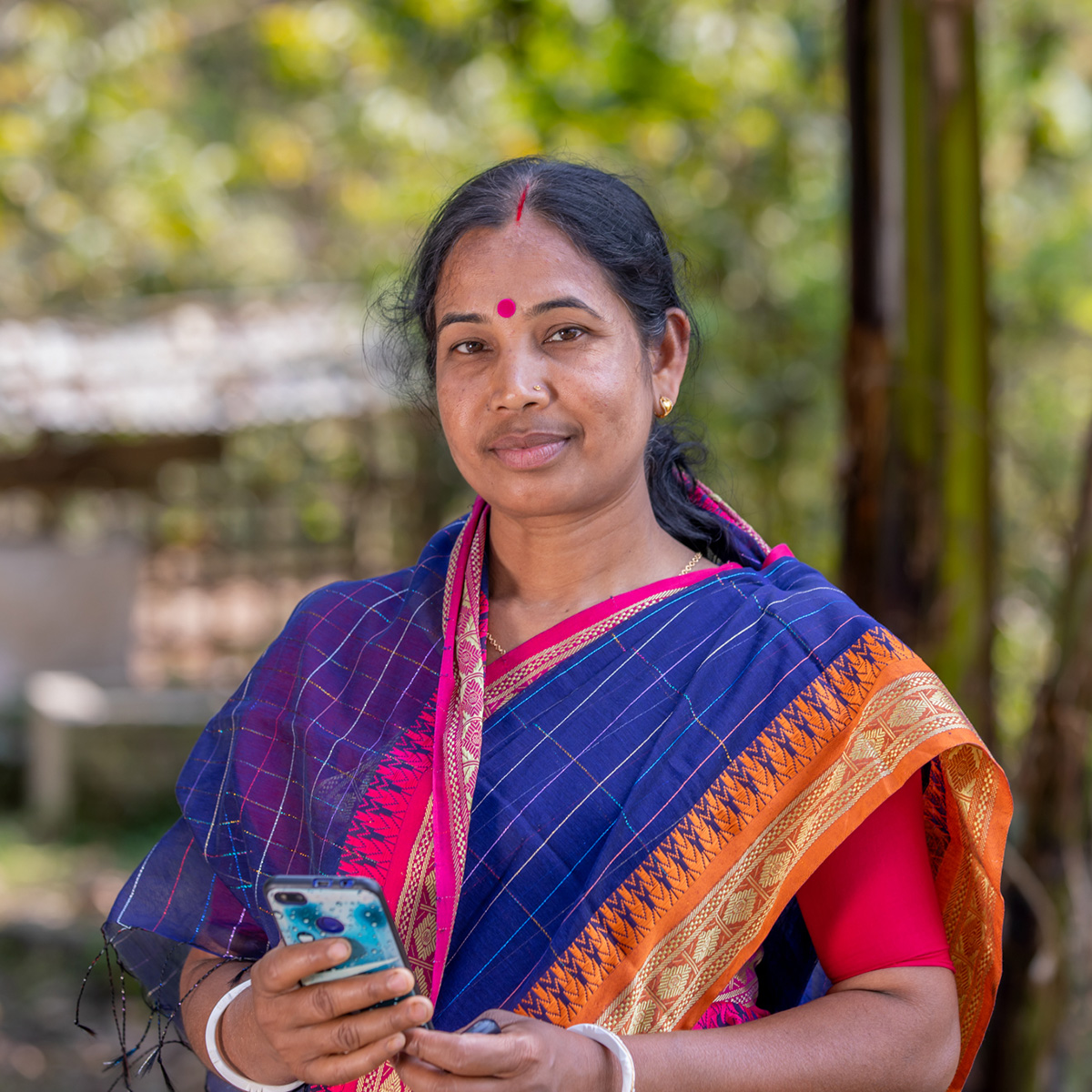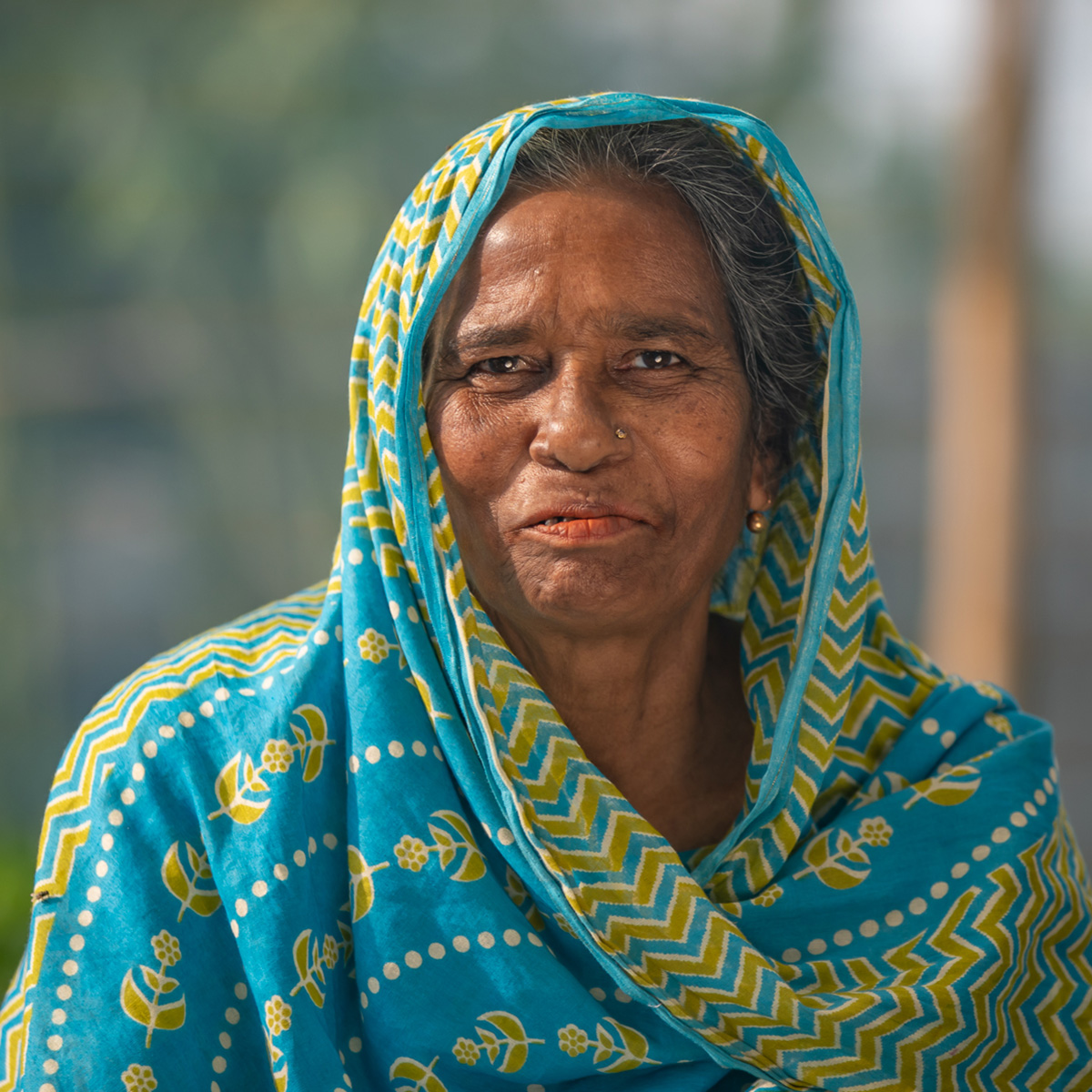Agriculture has deep roots for Ratna Biswas.
For generations her family has engaged in agriculture in the Jashore region of Bangladesh where the fertile land is ideal crops. She mostly cultivates rice and an assortment of vegetables, including eggplant, or brinjal as its known in Bangladesh. Her farming support the diet of her family of four, which includes her husband, son, and mother-in-law.
When an opportunity came around to start her own agricultural business, she grasped at the possibility.
“Agriculture has always been at the core of our family’s heritage. For me, starting my own agricultural business was an empowering opportunity I couldn’t let slip away,” Ratna shares with enthusiasm.
Through an initiative from the Feed the Future Insect-Resistant Eggplant Partnership aiming to catalyze food and economic security in Bangladesh and to support women entrepreneurs in the process, Ratna saw her opportunity. In September 2022 she became one of the first 19 women selected to start her own plant nursery. The project provided the resources to build the nursery and training to make the business a success. And for Ratna, it was the first time the 37-year-old would own the economic benefits from her agricultural endeavors.








